- Home
- About
- Hospitals
-
Treatments
- Orthopedic & Spine
- Knee Replacement
- Carpal Tunnel Release
- Rotator Cuff Repair
- Meniscus Repair / Meniscectomy
- Total Hip Replacement (THR)
- Total Shoulder Replacement
- Arthroscopy
- Ligament Reconstruction
- Spinal Fusion
- Discectomy
- Laminectomy
- Spinal Decompression
- Vertebroplasty and Kyphoplasty
- Fracture Repair
- ACL Reconstruction
- Tendon Repair
- Osteotomy
- Amputation
- Pediatric and Adult Cardiac
- Neuroscience
- Oncology
- Nephrology & KTP
- Gastroenterology & Hepatobiliary
- Obstetrics and Gynaecology
- Infertility
- Dental & Maxillofacial
- Plastic & Cosmetic Surgery
- Rhinoplasty
- Blepharoplasty (Eyelid Surgery)
- Facelift (Rhytidectomy)
- Breast Augmentation (Mammoplasty)
- Breast Reduction (Mammoplasty)
- Breast Lift (Mastopexy)
- Liposuction
- Abdominoplasty (Tummy Tuck)
- Brazilian Butt Lift (BBL)
- Lip Augmentation
- Breast Reconstruction
- Cleft Lip and Palate Repair
- Scar Revision
- Burn Reconstruction
- Botox Injection
- Ophthalmology
- Otolaryngology (ENT)
- Endocrinology
- General and Minimal Invasive Surgery
- Pulmonology
- Rheumatology
- Urology
- General Medicine
- Ayurvedic Treatment
- Orthopedic & Spine
- Doctors
- Contact Us
Hormone Therapy
Hormone Therapy for cancer treatment, also known as endocrine therapy, is a specialized
approach used primarily in the treatment of hormone-sensitive cancers, such as
breast cancer and prostate cancer. It involves the use of drugs or treatments
that target the hormones or hormone receptors involved in the growth of cancer
cells. Hormone therapy is a key component of the treatment plan for these types
of cancers and is typically prescribed by oncologists or specialists.
Here are some important details about hormone therapy in the context of
cancer treatment:
Hormone-Sensitive Cancers: Hormone therapy is primarily used to treat cancers that are influenced
by hormones. The two most common types of hormone-sensitive cancers that are
treated with hormone therapy are:
Breast Cancer: Hormone therapy is commonly used to treat hormone receptor-positive breast
cancer, where the cancer cells have receptors for estrogen and/or progesterone.
The goal is to block or reduce the effects of these hormones on cancer cells.
Prostate Cancer: Prostate cancer is often driven by the male hormone testosterone. Hormone
therapy aims to lower testosterone levels or block its effects on cancer cells
to slow tumor growth.
Goals of Hormone Therapy:
Breast Cancer: In breast cancer, hormone therapy can be used
in various scenarios, such as:
·
As adjuvant therapy after surgery to reduce
the risk of cancer recurrence.
·
As neoadjuvant therapy to shrink tumors before
surgery.
·
In metastatic breast cancer to control the
disease and relieve symptoms.
Prostate Cancer: In prostate cancer, hormone
therapy is often used to:
Slow tumor growth and relieve symptoms in advanced or metastatic
disease.
Shrink tumors before other treatments, such as radiation therapy.
Manage cancer that has recurred after initial treatment.
Types of Hormone Therapy:
Anti-Hormone Drugs: These drugs work by blocking the effects of hormones or reducing
hormone levels. Examples include tamoxifen and aromatase inhibitors (for breast
cancer) and anti-androgens (for prostate cancer).
Luteinizing Hormone-Releasing Hormone (LHRH)
Agonists: These drugs suppress the body's production
of sex hormones. They are often used in prostate cancer treatment to reduce
testosterone levels.
Ovarian Suppression: For premenopausal women with hormone receptor-positive breast cancer,
ovarian suppression may be used to reduce estrogen production.
Side Effects: The side
effects of hormone therapy can vary depending on the specific drugs used and
the individual patient. Common side effects can include hot flashes, mood
swings, sexual dysfunction, and changes in bone density.
Duration of Treatment: The duration of hormone therapy can vary. It may be given for a
specific period, such as several years, or as long-term therapy, depending on
the patient's condition and response to treatment.
Monitoring and Follow-up: Patients receiving hormone therapy need regular monitoring and
follow-up care to assess the treatment's effectiveness, manage side effects,
and adjust the treatment plan as needed.
Hormone therapy is an essential and effective treatment strategy for
hormone-sensitive cancers, helping to control the disease, improve outcomes,
and enhance the quality of life for many patients. The choice of hormone
therapy and its duration are determined based on the specific cancer diagnosis,
stage, and individual patient factors. Patients should have detailed
discussions with their healthcare team to understand the role of hormone
therapy in their cancer care and its potential benefits and side effects.
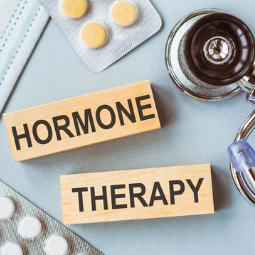



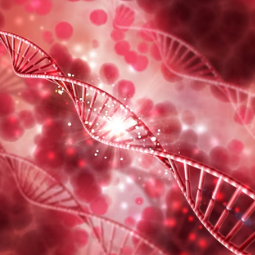
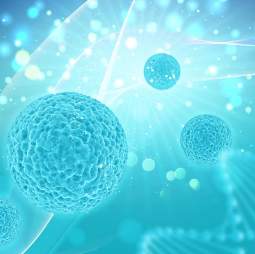
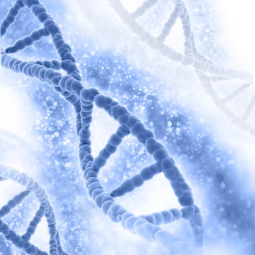

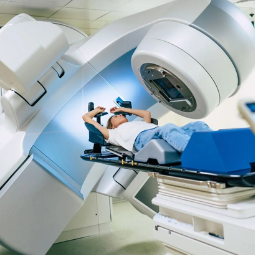

.png)